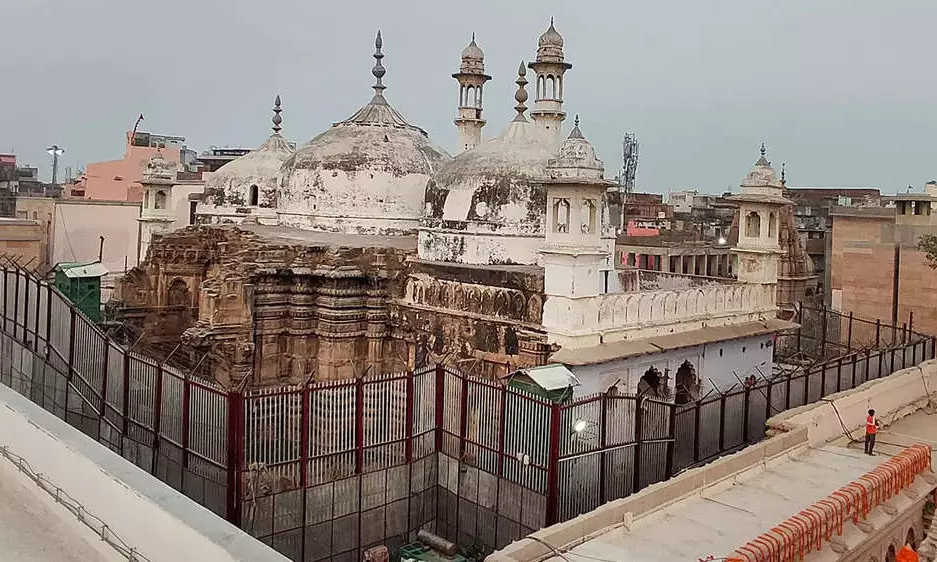
ASI begins Gyanvapi mosque survey excluding wazukhana area amid tight security
text_fieldsVaranasi: A survey of the Gyanvapi mosque complex in Uttar Pradesh’s Varanasi by the Archaeological Survey of India (ASI) began on Monday morning at 7.30 am, even as the mosque management committee filed a petition in the Supreme Court challenging the Varanasi district court’s decision to allow an inspection.
According to the sources, a UP Police team was seen entering the Gyanvapi mosque complex as the survey began. There were around 40 members, including ASI officials, four Hindu women plaintiffs and their counsels, and counsels for the Gyanvapi mosque management committee.
The Varanasi district court had on Friday, ordered an extensive survey by the ASI to determine whether the mosque was built over a pre-existing structure of a Hindu temple. The court observed that a scientific probe was ‘necessary’, for the ‘true facts’ to come to light.
“The ASI survey will begin on Monday. All the parties, including plaintiffs and defendants related to the matter, have been informed about it,” Varanasi district magistrate, S Rajalingam said.
The court, however, ordered to exclude a section that was sealed since the Supreme Court order in May 2022. The area that has been sealed, is where Hindus insist a Shivling has been found, while the mosque management maintained that the structure was part of a water fountain mechanism at the 'wazukhana', the reservoir where devotees perform ablutions before offering namaz.
The mosque’s management committee said that it will not take part in the survey. “If the survey begins from Monday, we will not participate in it. A petition against the order of the Varanasi district court has been filed by the counsel for the committee. The advocates of the committee filed a petition in the Supreme Court on Friday itself,” SM Yasin, the joint secretary of Anjuman Intezamia Masjid Committee, said.
District judge Ajaya Krishna Vishvesha, allowing an application by four Hindu women plaintiffs, on Friday directed ASI to conduct a survey, using dating, excavation and ground penetrating radar (GPR) techniques, of the plot where the mosque stands, next to the Kashi Vishwanath Temple and sought a report from ASI up to August 4 when the matter will be taken up next.
The court order came on the basis of two applications filed by four of the five Hindu plaintiffs namely Rekha Pathak, Manju Vyas, Sita Sahu, and Lakshmi Devi. They filed a suit in August 2021, demanding the right of worship at the Maa Shringar Gauri Sthal, located inside the complex that houses idols of Hindu gods.
Their pleas were argued by advocates Hari Shankar Jain, Vishnu Jain, Sudhir Tripathi and Subhash Nandan Chaturvedi.
The mosque management committee, in its reply, refuted the claim that the mosque was built over a temple, maintaining the structure at the spot was always a mosque. They are being represented through advocates Ansari and Ekhlaq Ahmad.
The management committee opposed the survey, saying such an exercise cannot be ordered to collect evidence. They also argued that a survey was previously conducted in April 2022 by an advocate commissioner and until the validity of that survey is not decided, no new survey can be ordered, news agency PTI reported.
The lawyers representing the mosque had argued that the Kashi Vishwanath-Gyanvapi mosque case was not maintainable, claiming that it violated the Place of Worship (Special Provisions) Act, 1991, which had barred any claims or litigation over any places of worship as they existed on 15 August 1947, except the Babri Masjid in Ayodhya.























